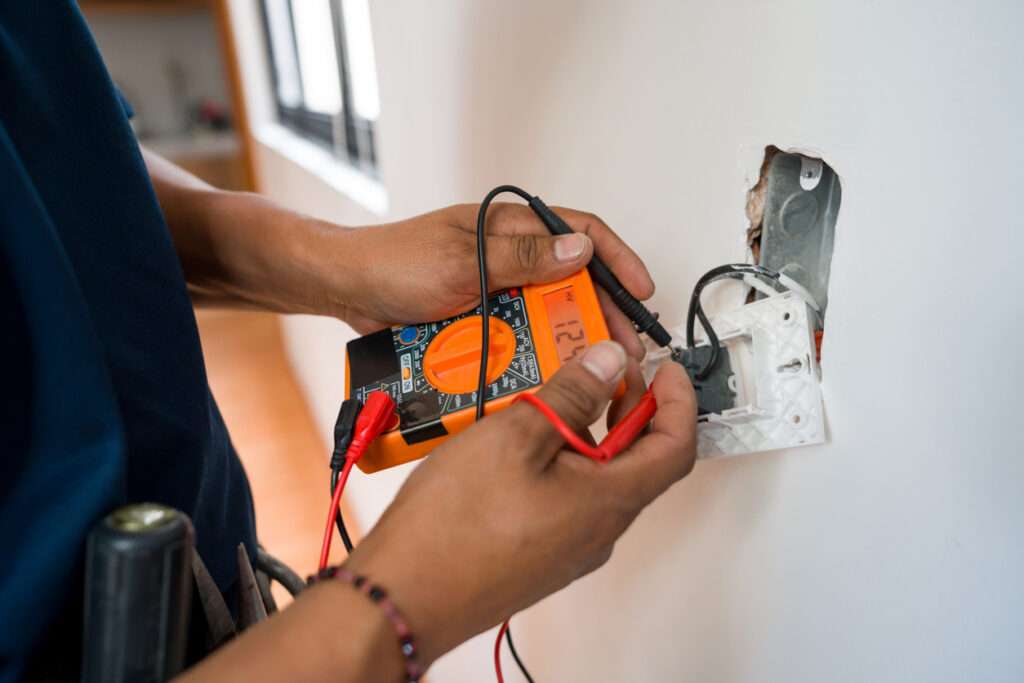The fall and winter months bring many challenges to homeowners. Temperature changes and storms can overload the power grid and interrupt your electrical service, but did you know how you use electricity at home daily can also cause overloaded circuits?
For the fall and winter seasons, professionals have shared tips to help you and your family stay prepared, warm and safe throughout the colder seasons.

Preventing dangerous circuit overloads
It’s probably happened to you: You’re running the dishwasher, then use the microwave, and suddenly, you’re in the dark. It may not be a big deal if you have a modern circuit breaker – you just go to your electrical panel and flip the tripped circuit breaker back on. But that’s not the whole story.
Overloading an electrical circuit by using too many appliances on one circuit is common but can cause problems. If it happens frequently, it could mean your system can’t keep up with your home’s electrical demands. Potential hazards caused by overloaded circuits may include fires, fried wiring, destroyed devices, and electrical shocks.
The best way to ensure your electrical system can handle your home’s current demands is by having a professional, trained electrician conduct a home safety check. When a professional does a home safety check, they conduct a thorough exam of your electrical system to make sure electrical wires, systems and components meet legal safety standards using the National Electrical Code (NEC) as their primary guideline. This is important for the safety of your home and everyone in it and will offer you peace of mind.
After completing a home safety check, ask a service professional to provide a detailed, prioritized checklist of areas needing immediate attention, plus recommendations for improvements and potential upgrades.
Weathering any storm
Being prepared for severe wintry weather involves many preparations. You can start by keeping up with the latest weather forecasts in your area, checking and restocking your home’s emergency kit, and reviewing your family’s emergency plans. You’ll also want to check your property’s exterior to ensure your roof, windows, and nearby trees are in good shape before storms bring wind, rain, snow, or other weather-related issues your way.
An electrical home safety check can help determine how prepared your system is for potential severe weather during the winter months. One of the most common-and potentially most dangerous-aspects of these storms can be power outages due to high winds, fallen tree limbs, ice storms, and more. While a short-term power outage is inconvenient, it doesn’t take long for a nuisance to turn into a serious situation, especially when temperatures are frigid.
A whole-house generator can be a lifesaver to help protect your home from power outages no matter the season. Whenever the power goes out, a whole-house generator provides all the power needed to maintain your electricity, keeping your household safe, warm, and functioning through any storm.
The next question is, what type and size generator is best for your home? To help you determine the right generator for your home’s needs, you may want to consult a service professional. They can help determine the wattage required for all your appliances so you’re not underestimating or overestimating the size of the generator needed. Getting the best fit for your home is important for safety, and can save money in the long run. A professional electrician can also ensure your generator is properly maintained for years to come.
After the storm
Following severe weather, schedule an electrical safety inspection to ease your mind about potential unseen issues. Always ask a professional before trying to fix or operate storm-damaged electrical devices.
Another way to protect your home from the consequences of outages is with a whole house surge protector. During a power outage, the loss of power is later followed by a sudden surge when power is restored – which is enough to overload your home’s electrical system. Without a whole house surge protector, your electronics can get fried, including everything from your TV and microwave to large appliances. A whole house surge protector helps protect all your electronics and appliances.
Weather is unpredictable, and being unprepared for severe weather can be serious. Take steps now to be better prepared when severe weather strikes.
By: Brandpoint








